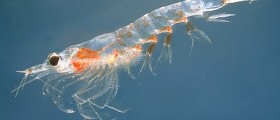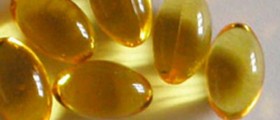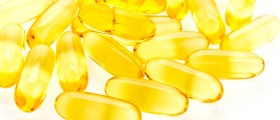The health benefits of liver, cod liver oil, and the desiccated liver are that they boost general health, energy, muscle growth, brain power, and libido. Liver, cod liver oil, and desiccated liver are super supplements, and rich in B vitamins, vitamin A, DHA, and arachidonic acid. These components are difficult to be found in other supplements.
The liver also gives you the energy to last longer swimming. It contains unknown nutrients against fatigue. The liver probably has high levels of lipoic acid, carnitine, and other nutrients which boost energy, but they are not researched enough.
Health benefit of liver and cod liver oil is that they are rich in vitamin A. Vitamin A has many beneficial properties. They are healthy fertility in women and men, proper development of the embryo, preventing asthma and mortality in children, preventing kidney stones, regulating sugar in the blood, protecting against environmental toxins and oxidative stress, protecting against the fatty disease of the liver, regulating fats in the body and promoting the development of puberty.

Experts do not know the dosage of vitamin A we need to take. There are some research, claims, and arguments about the amounts of vitamin A intake. Some claim that vitamin A intake is enough if we eat carrots and other vegetables which contain beta-carotene. Others consider that is necessary to mix diet, vitamin A from beta-carotene, and true vitamin A for sufficient intake of vitamin A. It is very difficult to find out what necessary intake of vitamin A our body requires.
Some Other Benefits of Eating Liver
Another health benefit of the liver is that it has arachidonic acid and DHA. The benefits of arachidonic acid are healthy skin and hair, fertility, proper hydration, gut health, and growth. DHA is needed for intelligence, learning, and visual acuity. The liver contains more arachidonic acid than egg yolks.
Cod liver oil also contains can contain high amounts of arachidonic acid. Animal liver contains insignificant amounts of DHA. If you feed animals with grass then their liver has higher levels of omega 3 fatty acids.
Fish oils and cod liver oils have EPA. EPA is a fatty acid that is not important for mammals but it can be converted into DHA and interferes with arachidonic acid. You need to avoid obtaining essential fatty acids from muscle meat, butter, liver, and occasional fatty fish. Also, avoid vegetable oils and excessive fish oil supplements.
Cod liver oil can be consumed one and a half teaspoon per day. Higher amounts of cod liver oils you can take only for fat-soluble vitamin intake. Also, higher amounts can be used with diets rich in minerals, magnesium, and vitamin B6 to provide arachidonic acid.
- But is eating the liver really good for human health? We attempted to verify this by testing 33 liver samples from wild animals (n?=?11) and farm animals (n?=?22).
- Study material was collected between May and September 2017 in the Lesser Poland Province (southern Poland, EU). Fresh liver samples, 100 g or more per sample, were obtained at two livestock buying stations. At the same time, surveys were used to collect information on the animals’ age, breeding and raising methods, and nutrition (for farm animals). For wild animals, the samples were obtained from three hunting clubs, and information on the animals’ age, sex, and body weight was provided by the hunters.
- No significant differences were found in the macroelement levels analyzed (Al, Ca, Cu, Fe, K, Mg, Mn, Na, P, S, and Zn) between the livers from wild and farm animals. The farm animal liver contained more Al, Cu, K, Mg, and Na (the difference ranged between 9 and 23%). Mn and P levels were found to be nearly identical in these two animal groups. Slightly lower results were obtained for farm animals than for wild animals with regard to content of Zn, Ca, and Fe.
- With regard to microelements (As, Cd, Co, Cr, Hg, Mo, Ni, Pb, and Sn), farm animal liver had a higher mean content of Cr and Sn only. The mean levels of the remaining elements were between 4 and 70% lower than in wild animals.
- In the samples from farm animals, there was a considerably larger dispersion of macroelement levels, and the highest variability in the entire material was found for the concentrations of: Hg, Cu, Fe, Al, and Cd.
- Comparisons between the test results and the maximum limits allowed by law showed that, in the case of wild animals, the regulatory limits were exceeded in 18% (for Cd and Cu) and 9% (for Hg) of the liver samples analyzed. The results for farm animal liver samples are much better, as none of these elements exceeded the allowed limits.
Liver is a very important human organ, and it is a great source of energy booster nutrients. The liver has high levels of biotin, and certain amounts of vitamin C. Liver is very important for metabolism, it is a head metabolic machine in the human body.
- www.nhs.uk/live-well/eat-well/meat-nutrition/
- www.nhs.uk/conditions/vitamins-and-minerals/vitamin-a/
- Photo courtesy of Marco Verch Professional Photographer by Flickr: www.flickr.com/photos/30478819@N08/50183200297

















Your thoughts on this
Loading...